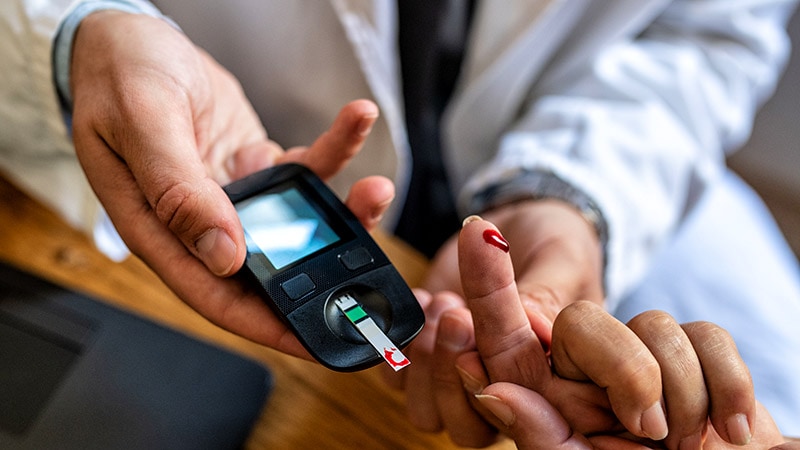Takeaway
- Working frequent night shifts may raise the risk of developing type 2 diabetes mellitus (T2DM), regardless of genetic predisposition.
Why this matters
- Shift work has become increasingly common and has been suggested to raise the risk for metabolic disorder and specifically T2DM.
Key results
- A total of 6770 prevalent cases of T2DM were reported.
- Multivariable-adjusted odds for T2DM were higher in current night shift workers compared with daytime workers (none or rare night shifts: OR, 1.15 [95% CI, 1.05-1.26]; some nights: OR, 1.18 [95% CI, 1.05-1.32]; usual nights: OR, 1.44 [95% CI, 1.19-1.73]), except permanent night workers (OR, 1.09; 95% CI, 0.93-1.27).
- The odds for T2DM was higher with working more night shifts per months:
- <3/month: OR, 1.24; 95% CI, 0.90-1.68;
- 3-8/month: OR, 1.11; 95% CI, 0.90-1.37; and
- >8/month: OR, 1.36; 95% CI, 1.14-1.62.
- Shift work exposure did not modify the association between T2DM genetic predisposition and T2DM odds.
Study design
- Researchers examined data from 272,214 people, including 70,480 people who provided in-depth reports of shift work exposure history.
- The study also included a sub-group of 44,141 people for whom genetic data were available.
- Funding: University of Manchester.
Limitations
- Risk for bias because of residual confounding.
References
References



